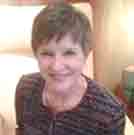|
|
 |
|
The views expressed on this page are soley
those of the author and do not
necessarily represent the views of County
News Online
|
 |
In “Experts” We
Trust
By Kate Burch
Fifty years after Pope Paul VI issued the encyclical, “Humanae Vitae”
which upheld the ancient teachings of Christianity regarding human
sexuality, there are still calls to “reconsider” the document and its
teachings, despite clear evidence all around us of the havoc wreaked by
the sexual revolution.
In Humanae Vitae, the pope made four predictions about what would
happen as a result of widespread use of artificial contraception:
An increase in marital infidelity
A general lowering of moral standards
A loss of respect for women (men would “reduce her to being a mere
instrument for the satisfaction of his own desires”).
Governments would coerce people into using contraception and intervene
in citizens’ sexual relationships.
It cannot be denied that these predictions have been realized.
Most would agree, upon reflection, that the sad state of the family
reflected in high divorce rates; failure of many to marry at all; huge
increase in single-parent and even no-parent households; and high
incidence of abortion are direct outcomes of disconnecting sexual
relations from their natural procreative function. The
breakdown of the family is, to me, the gravest social problem we
face. It is amply demonstrated that life outcomes in every area
of functioning are better for people who marry and stay married, and
that their offspring achieve more, are healthier and better adjusted
psychologically, and are more law-abiding than the children of
fractured or nonexistent families. I predict that clear links
will also be found with the so-called opioid epidemic and the rage that
underlies anonymous and apparently unmotivated mass violence.
The point I wish to make, however, is that decisions, both at the
individual and societal levels, made in response to “expert” advice are
often found later to be dysfunctional and counterproductive. I
recall very well the anxiety surrounding the publication of Paul
Ehrlich’s since-discredited 1968 book, “The Population Bomb.”
People became convinced that, by 1980, we would have widespread famine
and resulting world war and mass death from starvation, all due to
out-of-control population growth and depletion of natural
resources. In this climate of fear, people readily accepted the
idea of “zero population growth” and limited their family size to one
or two children. The Population Bomb turned out to be a dud and,
instead, we have today the collapse of many ethnic populations—Italian,
Spanish, Japanese, and Russian, to name a few— resulting from
below-replacement-level birth rates; societies struggling to care for
their lopsidedly elderly populations through the productivity of
correspondingly smaller working-age populations; all while availability
and affordability of most natural resources have increased.
There are many other examples of sweeping changes in behavior, guided
by “expert” opinion, that turn out badly. One is the increase in
obesity following the government’s promulgation of nutritional
guidelines calling for a diet consisting primarily of carbohydrates
with decreased proportions of meat, dairy, and fat. People
followed the guidelines, even exercised more, and they have gotten
fatter. Another example is the huge increase in malaria
deaths worldwide following the ban on DDT, which turns out to be
actually a pretty benign agent, when used appropriately. One more
is the hyping of acetaminophen (Tylenol) by drug reps to the physicians
who should have known better as a replacement for the much less toxic
aspirin. The almost vanishingly rare side effect of aspirin in
children, Reyes Syndrome, was used as the rationale for banning aspirin
for young children and recommending acetaminophen, now the LEADING
cause of acute liver failure.
So, must the people act like “sheeple?” Sometimes we do need
advice, of course, but we should adopt an attitude of skepticism and
prudence and think about the possible underlying motives of those who
are trying to mold our opinions, direct our behavior, and charge us
fees or taxes. All of the seven deadly sins: lust, gluttony,
greed, sloth, wrath, envy, and pride offer clues to evil motives, but
especially envy and pride. Responsible citizenship demands that
we be informed about what our representatives are doing, hold them to
account, and exercise the cardinal virtues: prudence, temperance,
courage, and justice, in our individual lives.
|
|
|
|

